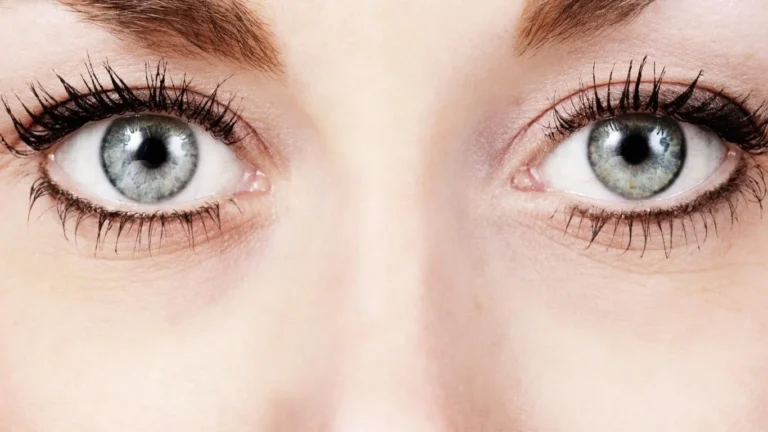Can Alcohol-Free Beer Trigger GERD? Hidden Dangers You Need to Know
Can alcohol-free beer trigger GERD? That’s a question I didn’t expect to hear so often at the clinic, but lately, patients have been bringing it up more and more. I work in a Gastroenterology office where heartburn, acid reflux, and all-things-GERD are basically our daily vocabulary. But when someone asked, “If I switch to non-alcoholic beer, will my GERD improve—or could it still flare things up?” it made me pause and really dig into the answer. Spoiler: It’s not as straightforward as you’d think.
What Even *Is* Alcohol-Free Beer, Anyway?

So, first things first—when we talk about alcohol-free beer, we’re usually referring to beer that’s been brewed like the regular kind, but the alcohol has either been removed or reduced to a super low amount (typically under 0.5% ABV). It’s marketed as a healthier alternative for people avoiding alcohol for health, religious, or personal reasons.
But here’s the thing most people don’t realize: just because it doesn’t have alcohol doesn’t automatically mean it’s gentle on your digestive system. A lot of alcohol-free beers still contain carbonation, acidic ingredients, and other triggers that might not play nice with your esophagus if you’re prone to GERD symptoms.
Let’s Talk GERD—From a Clinical Lens

In the clinic, GERD—short for Gastroesophageal Reflux Disease—is something we see *all the time*. It’s when stomach acid flows back into the esophagus, irritating the lining and causing that classic burning feeling. Think: heartburn, sour taste in the back of your throat, or waking up in the middle of the night coughing or choking. Yeah, not fun.
There are a ton of potential triggers for GERD, from spicy foods to eating too close to bedtime. But drinks often don’t get enough of the spotlight. We tend to focus on coffee, wine, soda—but what about non-alcoholic beer? That’s where it gets a little murky, and why I wanted to dive into this a bit deeper.
How Non-Alcoholic Beer Can Still Stir Up GERD Symptoms
Let’s break down why alcohol-free beer isn’t necessarily a safe haven for reflux sufferers:
- Carbonation: Most of these beers are still fizzy. That bubbly feeling you get? It can cause bloating and increase intra-abdominal pressure, pushing stomach contents back up into the esophagus. Hello, reflux.
- Acidity: Some alcohol-free beers are surprisingly acidic. Low pH equals more irritation for a sensitive digestive tract.
- Ingredients: Many of these beers still contain malt, hops, and barley—all of which can vary in how they affect the gut. Some patients even report sensitivity to gluten or fermentation byproducts, both of which can aggravate GERD or related issues like bloating and gas.
One of our regular patients—a guy in his early 40s who had given up alcohol for health reasons—came in complaining of worsening reflux. He thought he was doing his body a favor by switching to non-alcoholic beer. But after a little food and beverage diary digging, guess what? The nightly “innocent” bottle of NA beer was the likely culprit. Once he cut that out, he started feeling significantly better within just a week.
Can Alcohol-Free Beer Trigger GERD? Here’s What Science—and Real People—Say

There’s not a ton of formal research on this topic (yet), but the clinical observations we make in the field are just as telling. Plenty of folks experience GERD flare-ups from drinks they wouldn’t expect—kombucha, sparkling water, and yes, non-alcoholic beer.
When we consider what’s actually happening inside the body, it makes sense. Even without alcohol, these beers can still:
- Relax the lower esophageal sphincter (LES): Some ingredients—especially hops and carbonation—can cause the LES to weaken or temporarily open, allowing acid to creep upward.
- Increase stomach gas and pressure: Leading to belching and pushing up acid, especially when consumed with or after meals.
- Trigger inflammation: In sensitive individuals, certain grains or preservatives might worsen underlying digestive inflammation, indirectly affecting GERD symptoms.
From my personal experience chatting with patients, it’s often about the pattern of consumption more than the product itself. One patient told me he only got symptoms when he drank alcohol-free beer on an empty stomach. Another said having it with greasy bar food always made things worse. So, it’s not just the beer—it’s the context, too.
When in Doubt, Listen to Your Gut—Literally
If you’ve recently made the switch to alcohol-free beer and your heartburn’s been creeping back in, you might want to pause and reevaluate. Everyone’s triggers are different, but patterns matter. Keep a little food and beverage journal for a week or two—you’d be surprised what you can learn just by tracking what you eat and drink, and how your body responds.
In the clinic, we often recommend doing a 2-week elimination test. Cut out any suspected triggers (like your NA beer) and see if symptoms improve. If they do? You might have your answer right there. And if not, well, at least you’ve ruled one thing out and can move on to the next potential culprit with more confidence.
Other Sneaky Ingredients in Alcohol-Free Beer That Could Be Triggers

Now here’s where it gets a little tricky. Most people look at a bottle of alcohol-free beer and think, “No alcohol, no problem.” But have you actually looked at the ingredient label? You’d be surprised how much stuff gets packed into that little bottle.
One of the things I’ve noticed over the years working with GERD patients is that even seemingly harmless ingredients can cause flare-ups—especially when they’re consumed regularly or in combination with other triggers.
Let’s break down the usual suspects hiding in NA beers:
- Preservatives like potassium sorbate or sodium benzoate: These additives are common in shelf-stable beverages, and while they help with freshness, they can irritate the gut lining in sensitive individuals.
- Natural flavors: Vague, right? “Natural flavors” could mean citrus extracts, spicy notes, or even herbal compounds—any of which might irritate the lower esophageal sphincter (LES).
- Fermentation byproducts: Even though the alcohol’s mostly removed, some byproducts from fermentation (like esters and aldehydes) still hang around, and they’re not always friendly to reflux-prone stomachs.
One patient of ours swore by this fancy craft-style non-alcoholic IPA. It had a great flavor, sure—but it was brewed with extra hops and citrus peels for “zing.” Guess what? That zing was also the reason his GERD symptoms came roaring back. Once he switched to a less complex, less acidic brand, he saw noticeable improvement.
Is There a “GERD-Friendly” Way to Enjoy Alcohol-Free Beer?

So here’s the million-dollar question I get from patients all the time: “Do I have to give it up completely?” And honestly—maybe not. But it really comes down to *how* you’re drinking it, *what* brand you’re choosing, and *when* you’re having it.
Some quick tips I usually offer in the clinic:
- Stick to low-acid varieties: Lighter styles like lagers or wheat-based NA beers tend to be less acidic than dark ales or hoppy IPAs.
- Drink slowly, and not on an empty stomach: Chugging anything carbonated can spike pressure in your belly. Eating first helps buffer the stomach acid response.
- Watch the carbonation level: Some non-alcoholic beers are ultra-fizzy. Try pouring yours into a glass and letting it sit a minute or two before sipping.
- Read the label: If you can’t pronounce half the ingredients, maybe reconsider if it’s worth the risk.
One of my favorite conversations was with a patient who found a super light, almost watery NA lager that worked for him—but only if he paired it with a balanced dinner and didn’t go for seconds. It wasn’t about banning things, it was about *knowing your body* and respecting its limits.
The Timing Factor: Why When You Drink Matters

We tend to underestimate just how much timing plays into digestive symptoms. I’ve had patients who could eat a cheeseburger at noon and feel fine—but try the same meal at 9 PM and boom, heartburn city. Same goes for drinks.
If you’re cracking open an alcohol-free beer while lounging on the couch late at night, and then laying down soon after? Yeah, that’s a recipe for reflux disaster.
Here’s what I recommend to GERD-prone patients:
- Cut off fizzy or acidic drinks 2–3 hours before bed: This gives your stomach time to digest and reduce pressure.
- Stay upright: Sitting or walking after your meal and drink gives gravity a chance to help keep acid where it belongs—in your stomach.
- Limit quantity: Even a “safe” drink can become problematic if you’re having multiple bottles in one sitting. Moderation really does matter here.
One of my regulars used to drink two bottles of alcohol-free beer with dinner almost every night. He didn’t even consider it a potential issue until I asked him about his evening routine. He cut back to just one, earlier in the evening, and that small change made a world of difference for his nighttime reflux.
Should You Just Switch to Another Beverage?
If alcohol-free beer is starting to feel more like a gamble than a pleasure, you’re not alone. A lot of my patients eventually explore alternatives—and some find options that let them enjoy a similar vibe without the digestive drama.
Here are some alternatives I’ve seen work well:
- Herbal iced teas: Chamomile, rooibos, and ginger teas (served cold) can be soothing and flavorful without triggering acid.
- Flat mocktails: Skip the fizz and go for a mixture of fruit juice, water, and fresh herbs. (Try watermelon + mint + cucumber water!)
- Kombucha alternatives: Some people who react badly to kombucha or NA beer do better with lightly fermented probiotic drinks that are lower in acid and sugar.
That said, if you’re truly missing the “beer experience,” some brands are starting to create low-acid, flat versions—though they’re a bit harder to find. I always tell patients: experiment mindfully. Keep track of what works, and don’t beat yourself up if something doesn’t. GERD management is all about learning your body’s personal cheat codes.
What If You Still Want That “Beer-Like” Experience Without the Reflux?

Look, I totally get it. There’s something about sipping a beer—whether it’s while watching a game, grilling in the backyard, or just relaxing after a long shift—that feels… right. For a lot of patients, giving up that little ritual can feel like a loss. But the good news? You can absolutely recreate that same “beer moment” without triggering your GERD.
In fact, I’ve had more than a few patients (and friends, honestly) find clever ways to make it work. The trick is being intentional and informed. Flavor, feel, and satisfaction—without the side of heartburn.
Smart swaps that can give you the vibe without the burn:
- Bitters and soda (without the soda): Try a splash of bitters in flat water or herbal iced tea for that botanical complexity.
- Mocktail kits: Some brands now make low-acid mocktail mixes you can customize. Look for ones that skip the fizz and focus on ginger, herbs, or cucumber bases.
- “Dry” social drinks: Non-fermented adaptogen-based drinks are popping up everywhere now. Just watch the ingredients—some can still be acidic or spicy.
One of my GERD-savvy friends swears by her homemade mock “shandy”—flat ginger tea, a splash of lemon (if she’s not flaring), and a cucumber spear. No reflux, no regrets. You don’t have to give up the social rituals—you just have to remix them a little.
Understanding Your Unique Triggers Is Key

If there’s one thing I’ve learned working in a gastroenterology clinic, it’s this: GERD is not a one-size-fits-all condition. What wrecks one person might not phase another. And that’s why keeping a trigger journal is something I always recommend.
It’s not just about figuring out if alcohol-free beer triggers GERD—it’s about understanding your body’s full story. When you track what you eat, drink, and how you feel afterward, patterns start to emerge. And those patterns? They’re gold when it comes to managing your symptoms.
Here’s how to make a trigger journal work for you:
- Log your meals and drinks for at least 2 weeks. Include time of day and how much you had.
- Note symptoms in real-time. Was it heartburn? Regurgitation? That tight chest feeling?
- Look for patterns. Are symptoms worse when you drink certain things at night? After fatty meals? When you’re stressed?
Once you’ve got some solid notes, you can bring them to your provider or dietitian, and work together on a customized plan. I’ve seen patients go from daily discomfort to near-complete relief with just a few simple changes based on their journaling insights. It’s like turning your own body into a map—and suddenly, things click.
So… Can Alcohol-Free Beer Trigger GERD?
Let’s circle back to the original question—and yeah, based on both research and plenty of real-world experience from my side of the clinic counter—the answer is a qualified yes.
Just because alcohol-free beer lacks the alcohol doesn’t mean it’s safe from a reflux perspective. The carbonation, acidity, fermentation byproducts, added flavors, and preservatives can all stir up GERD symptoms in people who are sensitive. That said, some individuals can tolerate small amounts without any issue—especially if they’re smart about timing and pairings.
Here’s what I tell my patients:
- Pay attention to how you feel—your symptoms are the best guide.
- Keep portions small and try it with food, not on an empty stomach.
- Avoid drinking late at night or while reclining.
- And don’t assume “non-alcoholic” automatically equals “safe for reflux.”
I’ve seen people go through the full spectrum—from totally cutting it out to finding creative workarounds that let them enjoy the experience without the discomfort. It’s about striking a balance that supports your health while still letting you live your life.
Final Thoughts From the Clinic Floor
Managing GERD is part science, part self-awareness, and part trial and error. And while alcohol-free beer might seem like the “healthier” option at first glance, it’s worth taking a deeper look—especially if you’re noticing more frequent symptoms after drinking it.
As someone who’s worked closely with GI patients day in and day out, I can tell you: GERD doesn’t have to control your life. Once you identify your triggers and create a strategy that works for your body, things get a whole lot easier. Whether that means adjusting your drink of choice or just changing when and how you enjoy it—it’s all progress.
And if you ever find yourself standing in the drink aisle, wondering, “Can alcohol-free beer trigger GERD for me?”—now you’ve got a solid head start on the answer.
References
Disclaimer
This content is for informational purposes only and should not be taken as medical advice. Always consult with a qualified healthcare provider regarding any questions you may have about a medical condition, diagnosis, or treatment plan. The information shared here is based on general knowledge and personal clinical experience, and individual results may vary.

Camellia Wulansari is a dedicated Medical Assistant at a local clinic and a passionate health writer at Healthusias.com. With years of hands-on experience in patient care and a deep interest in preventive medicine, she bridges the gap between clinical knowledge and accessible health information. Camellia specializes in writing about digestive health, chronic conditions like GERD and hypertension, respiratory issues, and autoimmune diseases, aiming to empower readers with practical, easy-to-understand insights. When she’s not assisting patients or writing, you’ll find her enjoying quiet mornings with coffee and a medical journal in hand—or jamming to her favorite metal band, Lamb of God.







